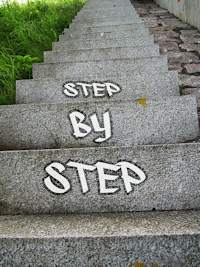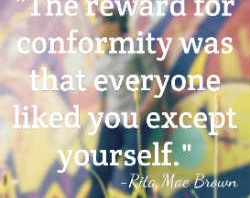In a previous post, self-confidence is defined as a “belief in our self and our abilities.” Self-esteem is usually about to how we appraise our worth or respect.
Self-esteem can directly affect our self-confidence, and can lower it or inflate it.
Introverts Quick Guide to Self-esteem
– From acceptance to appreciation
Maybe you are in an environment where the prevailing culture is more extroverted. Growing up in an Italian family I can relate.
I’ve found when I team up with my more extroverted relatives or friends; we can do things together that neither of us on our own can do as well. Bring yourself to the party! You’ll find your acceptance will lead to appreciation.
Accept yourself for who and how you are rather than trying to be what you are not.
– Stop comparing yourself
Do you compare yourself to others? Almost all of us compare ourselves to someone else. Our inner dialogue might sound like, “John is so outgoing, and I am so quiet.” Or, “I’ve gained so much weight while Nancy looks terrific.”
Or maybe you compare yourself to you at another time? “When I was younger …” or “When I was thinner ….”
When we compare ourselves with others, someone always loses! Why complicate things.
Even comparing our present with our past might not help our self-esteem. What if the situation we are comparing is worst now that it was then?
Measuring ourselves by comparisons can be irrelevant.
– Expand your comfort zone to adjust your esteem
We each have a comfort zone, that safe feeling space in all that we do and say. But sometimes it can be like a rear-view mirror and keep us from moving forward.
With one small step at a time, decide to do something that makes you feel uncomfortable.
Hate networking? Start with identifying a local event that fits your schedule, might have someone you know who is going, and register for it. This small act is moving you forward. 
Expanding your comfort zone is about small and manageable steps that build a stairway.
Being in our heads more of the time is a decided introvert advantage:
- Use this reflective time to tune into our self-talk – maybe change the words you say to yourself to appreciate yourself more.
- Listen for any comparison put-downs and shift them to be uplifting. Or listen if you are putting yourself on a pedestal and need to come down a step or two.
- Think through making an informed decision about that next small step out of your comfort zone.
How is your self-esteem?
What are you willing to do to adjust it?

Want more specifics ideas about introvert strengths and how to use them? Grab the free 32-page excerpt the ebook, The Happy and Fulfilled Introvert. Patricia Weber, the introvert inspirer, provides practical tools – blogging, books, coaching, speaking for the introvert to navigate the rules at work.
 How to Use Hypnosis To Build
How to Use Hypnosis To Build
Self-Confidence
Self-confidence is an attitude, which is created based on memories, feelings, and emotions that are present at the unconscious level of mind.
Hypnosis and NLP are powerful tools for communicating with and manipulating thoughts and ideas that are unconscious.
Click Here To Get This e-Book For Free!


